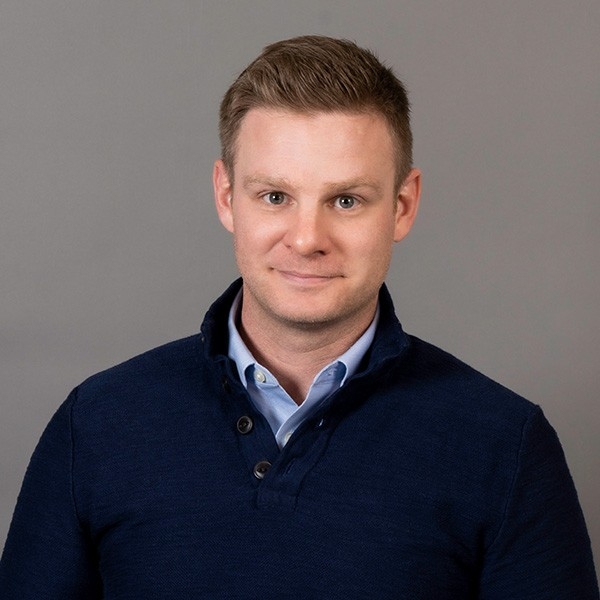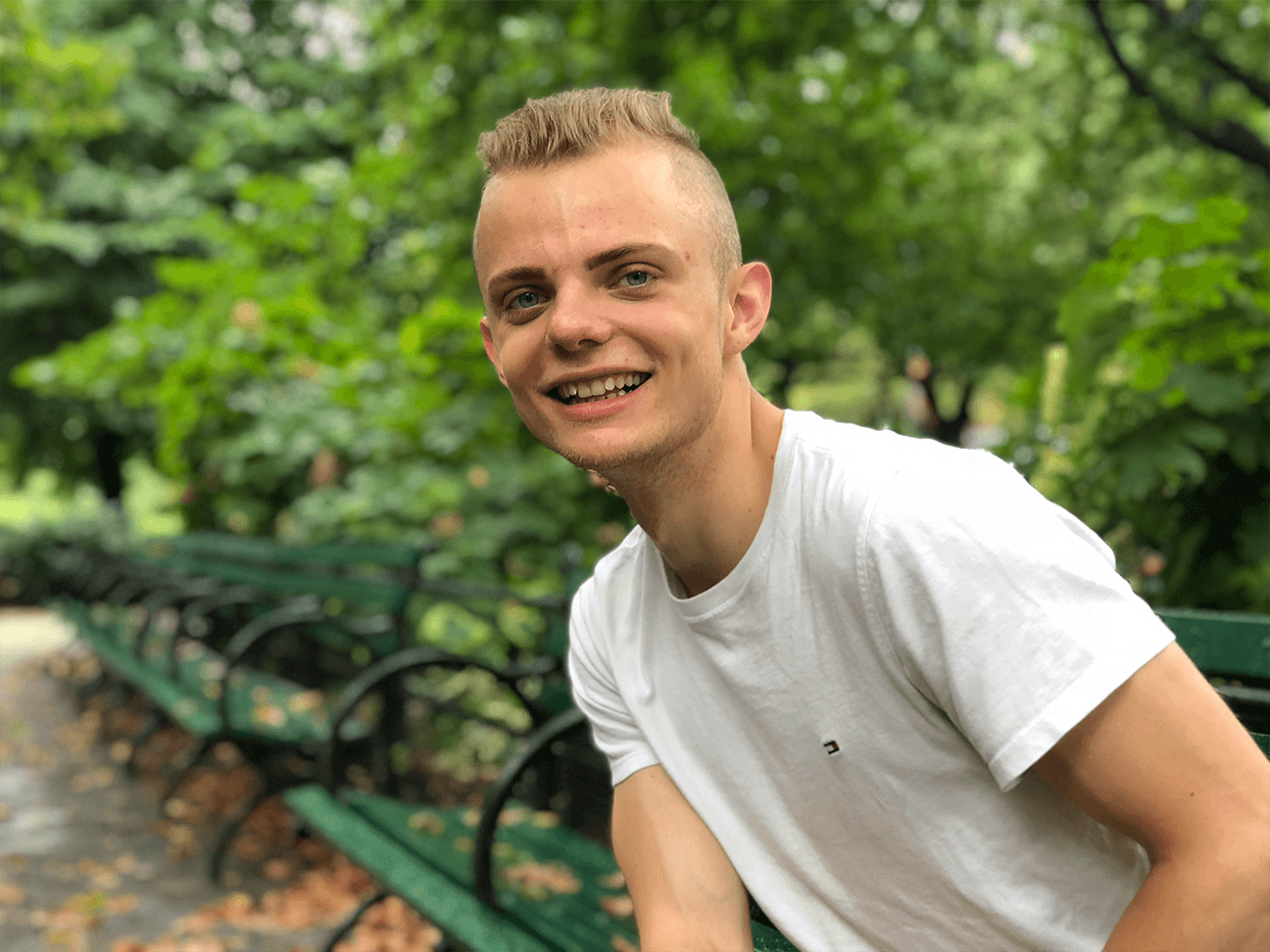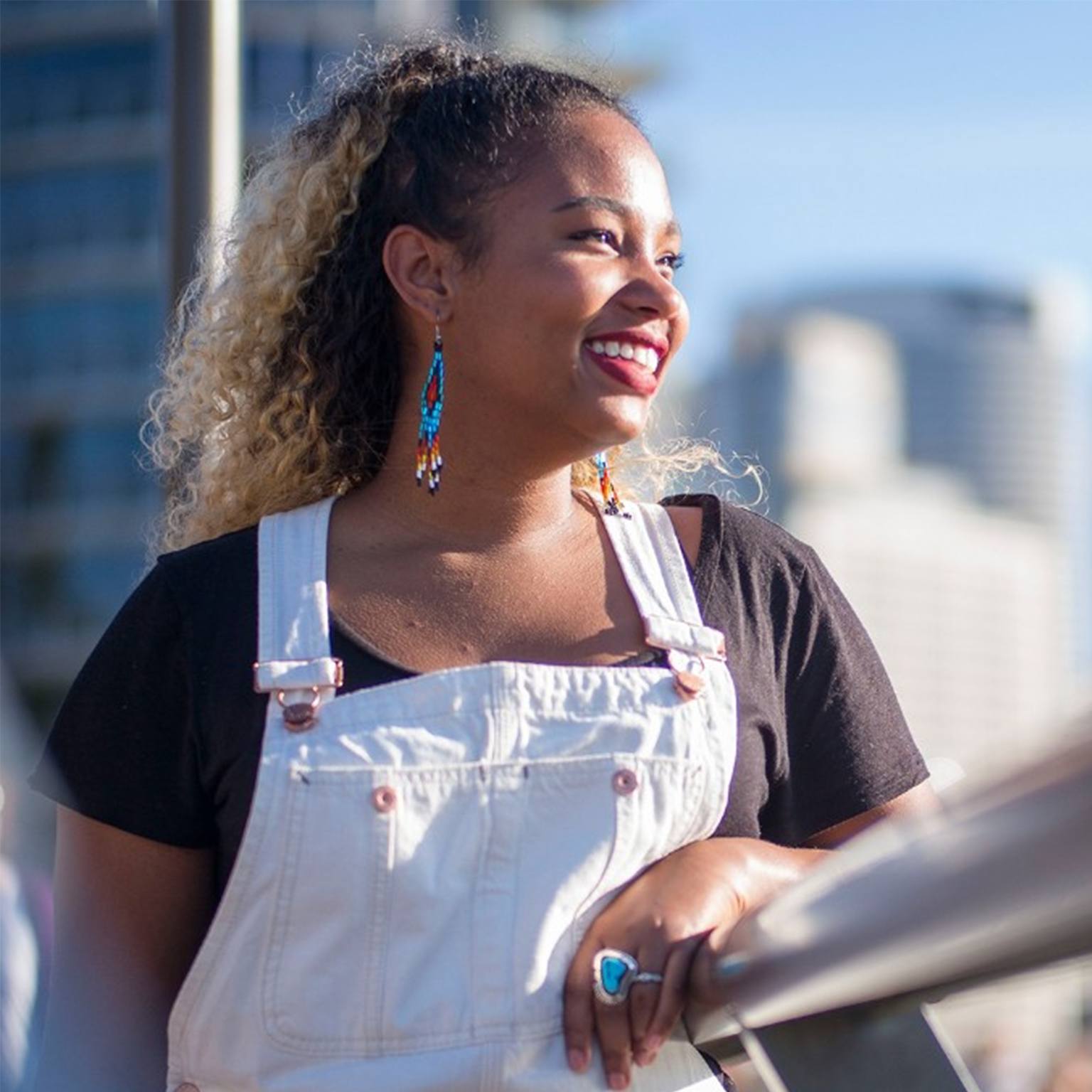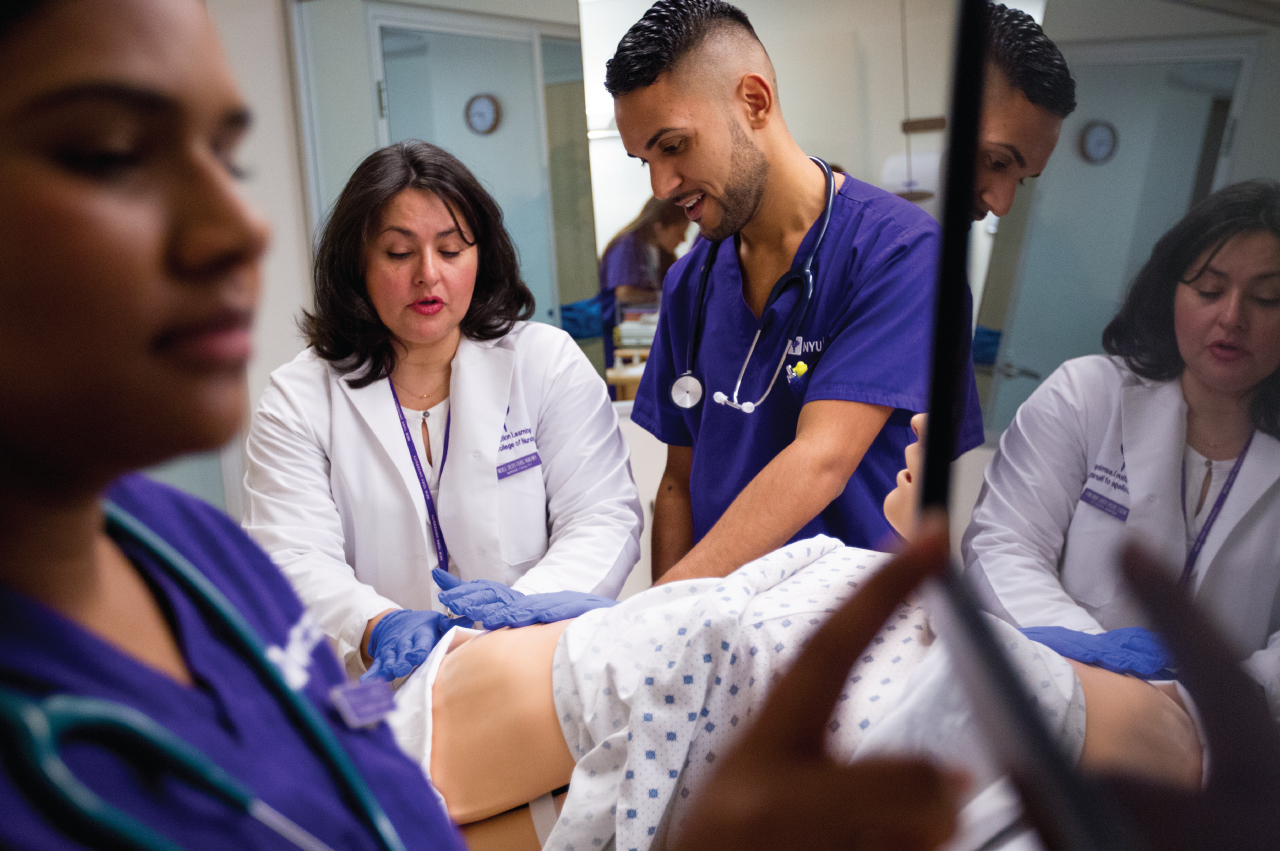Published February 17, 2022
A Nursing Major Focused on Her Navajo Community

When it came time for Cali Delp to accept her offer of admission to the NYU Rory Meyers College of Nursing, she was torn. Growing up in the small town of Shiprock, New Mexico, on the Navajo Nation reservation, she wanted college to be an adventure far away from home. NYU’s location in the heart of New York City checked that box. So did Meyers’ reputation as a top-tier nursing school. Still, she was “a little scared” about leaving the reservation, she shares. “When I was researching NYU, I didn’t really hear from students with my background. So I didn’t know what to expect, especially since I’m a first-generation college student. I certainly didn’t think I would meet any other Indigenous people.”
Overcoming her uncertainty, Cali took a leap of faith. Now in her junior year, she is a Nursing major and Anthropology minor, Meyers Scholar, LEAD Honors Scholar, and e-board member of the student-run Native American and Indigenous Student Group. Her concerns have been put to rest as she’s grown academically, socially, and personally. As a result, her future is taking shape—a future that’s deeply connected to her past.
Centering Community in Her Curriculum
“As a little girl, there was nothing cooler to me than learning the medicinal properties of the herbs Navajo people use, observing healing ceremonies, and discovering how the land can heal,” says Cali, whose great-grandfather was a Navajo medicine man. As is Navajo tradition, Cali learned his teachings. And, as she grew, she developed an interest in how this knowledge could balance and uplift a person’s mental, physical, emotional, and spiritual being. With this interest, she started considering her future. “Nursing seemed like a great fit because it incorporates the holistic, person-centered approach of the traditions I was taught,” she explains. But a few more years had to pass before she was certain about her decision.
When she was in high school, Cali became very aware of what was happening to her family and her community. “Recently, my family experienced a series of hardships that led to poor mental, physical, emotional, and spiritual health. And that helped me discover my true passion for health care,” Cali shares. Witnessing these struggle helped her discover a path forward for herself. “I believe it’s important to incorporate non-Western practices into the current Western health-care framework in order to address the issues seen in Native and other non-white communities,” she says. “The Western health-care system needs to be more culturally dynamic. I want to bring representation on both a systemic and individual level to help achieve this goal. Nursing gives me an avenue to do that.”
At NYU, Cali has nurtured her desire for representation and her drive to care for historically marginalized communities through nursing classes like Developmental Psychology and Global Perspectives in Health. Her classes have provided a framework for understanding how the impacts of settler colonialism have led to the problems facing her community today. Since then, she’s applied this framework to research and real-world experiences.
Research and Outreach During a Pandemic
Cali first began conducting research with Professor Michele Crespo-Fierro, director of the LEAD Honors Program. They developed a presentation on racial disparities in health care and how they can be dismantled in nursing for a regional meeting of the Association of Nurses in AIDS Care. At the time, Professor Crespo-Fierro also asked Cali to develop a land acknowledgment statement for the meeting. The experience showed Cali that it’s possible to conduct research while advocating for her heritage. These two ideas coalesced in the fall of 2020 when, while studying virtually from home due to COVID-19, Cali took a position as a research assistant with the Johns Hopkins Center for American Indian Health.
Joining the fight against COVID-19, she worked alongside public health nurses at the Northern Navajo Medical Center. There, she assisted with everything from telehealth monitoring to coordinating patient isolation and quarantine in a community the pandemic hit hard: her community. “I saw the concepts I learned in class play out in real life,” Cali says. “It exposed me to the public health side of nursing. And I started to think, ‘Maybe this is a direction I want to go in the future.’”
She further sharpened her focus in the fall of 2021 when she delivered a presentation on mental health crises in Indigenous communities for the Diversity Matters series at Meyers. As she combines her growing interests in research and community health with her desire to advocate for Indigenous communities—including her own—Cali’s future is taking shape at NYU. “I’m becoming more interested in mental health as I see and feel the devastating effects that poor mental health has on individuals and collective communities,” she affirms. “I would love to do further research on mental health, especially PTSD, in Indigenous communities because research is exactly what’s lacking, and it would really help.”
All things considered, it isn’t just Cali’s classes and research experience that helped her understand what she wants to do in the future. The social support and sense of community she’s found here has been just as important to her—if not more so.
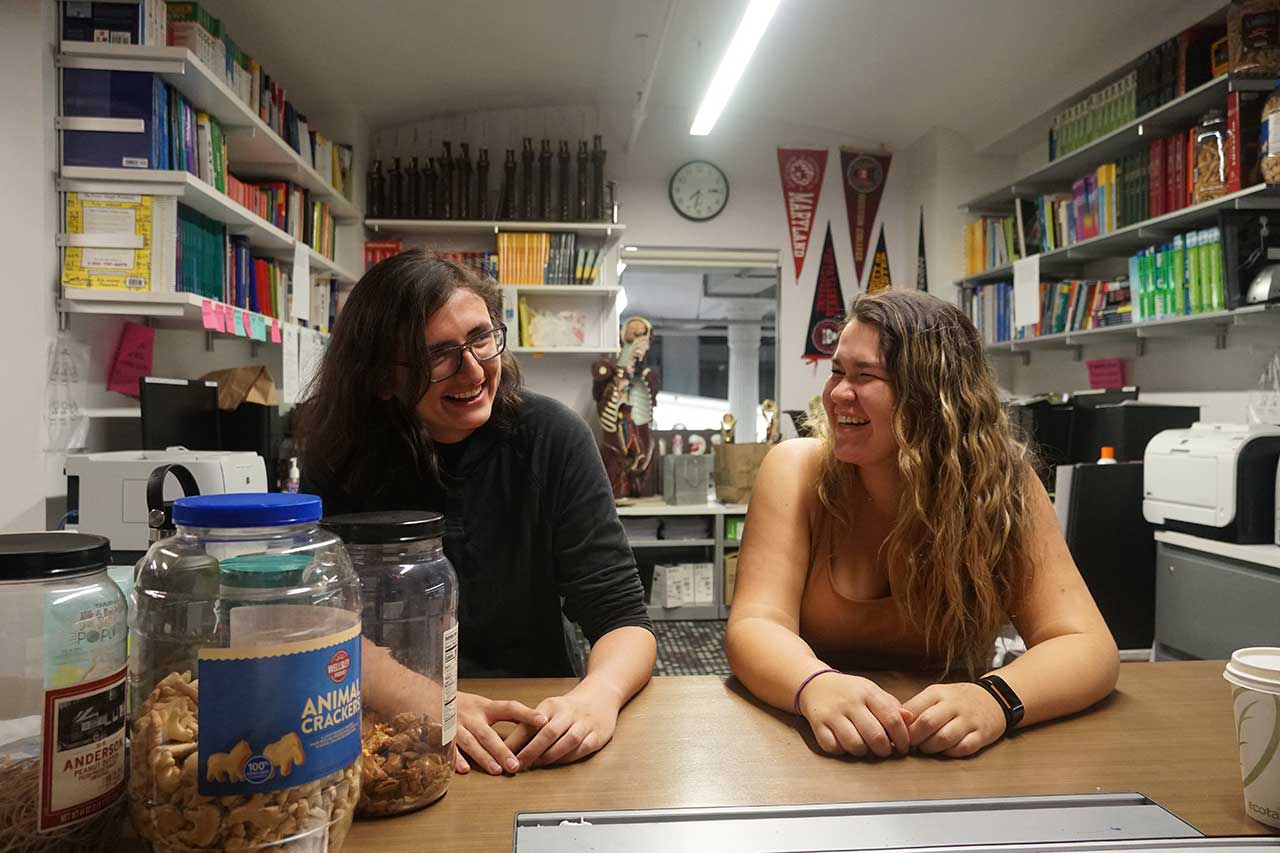
Finding Connection Far from Home
“As a Navajo woman, my experience at NYU has been eye-opening and validating,” Cali shares. It wasn’t what she was expecting, but it’s certainly what she found as a member of the student-run Native American and Indigenous Student Group (NAISG). “NAISG provides a support system that makes me feel connected to the school and my home. This a feeling I was not prepared to find at NYU since I’m usually the only Indigenous person in most settings away from home,” she says. NAISG helped Cali connect with a group of people from backgrounds similar to hers and offered a place for her to share her experiences with peers who can relate to and empathize with her.
Cali says that NYU faculty and administrators have been hugely supportive of her academic and personal growth as well, helping her center her perspective as an Indigenous woman in many settings and making her feel seen and heard. “Two themes that have colored my experience at NYU are personal growth and self-discovery,” she says. “Navajo people believe that our purpose in life is to grow and learn and overcome our fears to become a more whole person. I’m extremely grateful for the opportunity that NYU has given me to fully pursue this purpose.”
